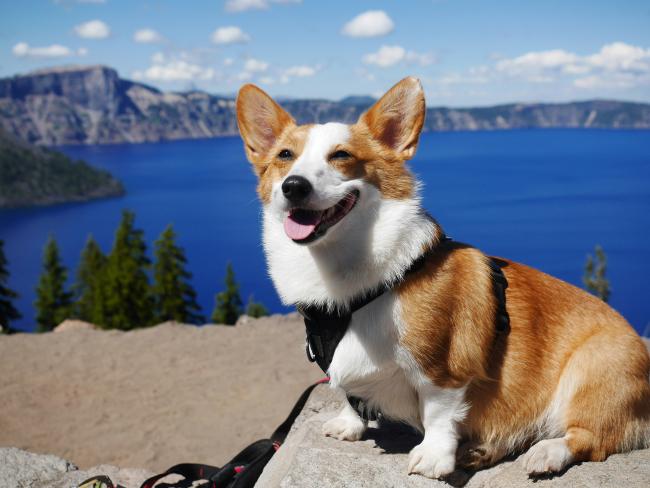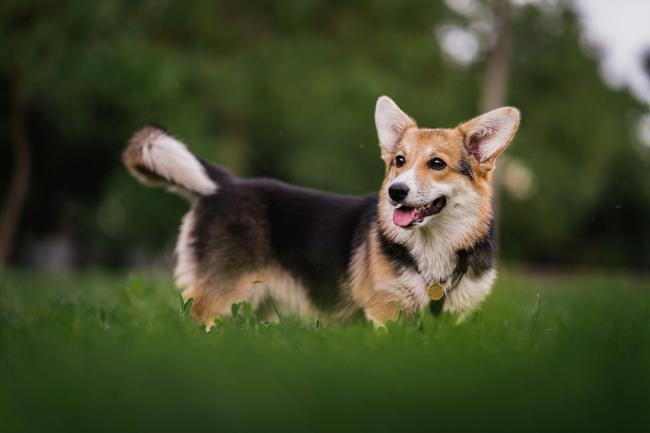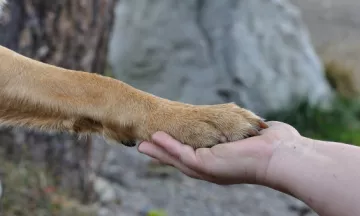Pembroke Welsh Corgi Facts

Breed name: Pembroke Welsh Corgi
Classification: Herding breed
Size: Small to Medium
Coat: Medium length, double coat
Colour: Red, sable, fawn, black and tan with or without white markings
Personality: Outgoing, friendly, vigilant
Family-friendly: Yes
Friendly with other pets: Yes
Pembroke Welsh Corgi Background
Affectionately known as the "Corgi," the Pembroke Welsh Corgi is a small herding dog breed known for its short legs, long body, and spirited personality. This article delves into all you will need to know about Corgis, including their origin, distinctive traits, and how to care for them.
Origin and History
Popular myth suggests that Pembroke Welsh Corgis were created as fast pets for fairies, which they supposedly rode into battle. In reality, they hail from Pembrokeshire, Wales, where they were used as herding dogs - specialising in cattle.
They are one of the oldest herding breeds and are believed to have descended from Vallhunds, Swedish cattle dogs, brought to Wales by the Vikings.
The breed has a royal connection, having been a favourite of British royalty, especially Queen Elizabeth II, which has contributed to their popularity. Initially bred for their herding abilities, Corgis are now cherished as companions and family pets.

Physical Appearance
Pembroke Welsh Corgis are known for their short stature, upright ears, and fox-like facial expressions. Their body is long in proportion to their height, which along with their strong, muscular legs, allows them to herd livestock by nipping at their heels and quickly dodging out of the way. They possess a double coat that varies in colours, including shades of red, sable, fawn, and black and tan.
One of the breed’s charming features is their tail, which differs from their Cardigan Welsh Corgi cousins. The Pembroke’s tail was historically docked to prevent damage when herding - leaving a cute, short stub that wags enthusiastically. In modern times, it is falling out of fashion, with many countries banning the practice. A small number of the breed naturally carry a bobtail gene - although it is quite rare.
Behaviour and Temperament
Pembroke Welsh Corgis are renowned for their friendly, outgoing nature and are often described as having big dog personalities in small bodies. They are vigilant and observant, making them excellent watchdogs. Their intelligence and eagerness to please make them highly trainable, suited for various dog sports and activities.
However, Corgis are known for their stubborn streak, which, coupled with their intelligence, means they can sometimes be a handful. Their herding background also instills a strong sense of protectiveness and can lead them to herd children or other pets if not properly trained.

Training and Exercising
Training a Pembroke Welsh Corgi can be a rewarding experience due to their quick learning ability. Positive reinforcement and consistency are key in training them, as they respond well to treats and praises. Early socialization and obedience training are essential to curb their herding instincts and ensure they grow into well-behaved adults.
Despite their small size, Corgis have a lot of energy and need regular exercise to stay healthy and happy. Daily walks, play sessions, and access to a safely enclosed area where they can run freely are great ways to keep them physically and mentally stimulated.
Living with a Pembroke Welsh Corgi
Living with a Pembroke Welsh Corgi means incorporating their active and sociable nature into your daily life. They thrive in environments where they can be involved with their families, whether it’s following you around the house, participating in outdoor activities, or learning new tricks. Their affectionate and loyal disposition makes them wonderful companions, good with kids and for both individuals and families alike.
However, their tendency for excessive barking and their herding instinct require early training and socialisation. With the right guidance, Corgis can adapt well to various living situations. They are great as an indoor dog in apartments - as long as their exercise and companionship needs are met.
Health
Pembroke Welsh Corgis are generally healthy, but like all breeds, they’re prone to certain health conditions. Here are some common health concerns for Corgis:
- Hip Dysplasia: A condition that can affect their mobility and quality of life.
- Degenerative Myelopathy: A progressive disease of the spinal cord, leading to paralysis.
- Eye Conditions: Including progressive retinal atrophy (PRA) and cataracts.
Regular veterinary care, including screenings for hip dysplasia and eye conditions, along with a balanced diet and exercise, can help maintain a Corgi’s health.

Grooming
Grooming a Pembroke Welsh Corgi involves routine care to keep their coat healthy and reduce shedding. Here’s what to consider:
- Brush their coat several times a week to remove loose fur and prevent matting.
- During shedding season, daily brushing may be necessary.
- Regular ear checks and cleanings are important to prevent infections.
- Maintain dental hygiene with regular tooth brushing.
- Nail trimming is needed to keep their paws healthy.
Introducing grooming routines early on helps your Corgi become accustomed to the process, making it a positive experience for both of you.
Pembroke Welsh Corgis are delightful dogs known for their companionship, loyalty, and spirited character. Whether you’re seeking an energetic companion for adventures or a loyal family pet, a Corgi could be the perfect fit.
Do you need to find an experienced local dog walker for your Corgi? Pawshake has plenty of caring pet sitters that are ready to help at a moments notice. Find a Pawshake dog walker today.






